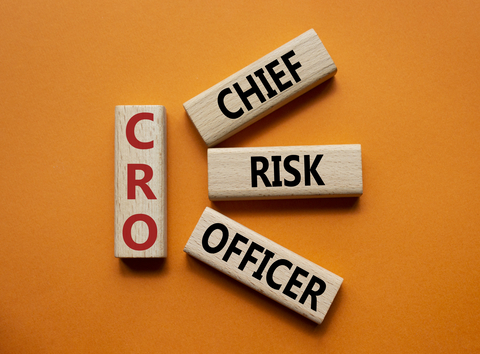In the tumultuous waters of today’s business landscape, one role has emerged as a beacon of stability and foresight – the Chief Risk Officer (CRO). Tasked with identifying, assessing, and mitigating risks, CROs play a pivotal role in safeguarding their organizations against unforeseen threats and ensuring resilience in the face of uncertainty.
While the C-suite traditionally focuses on driving growth and maximizing opportunities, the importance of risk management cannot be overstated. From geopolitical instability and regulatory changes to cybersecurity threats and economic downturns, organizations face a myriad of risks that can jeopardize their success. Enter the CRO, a strategic leader tasked with overseeing risk governance, implementing risk mitigation strategies, and fostering a culture of risk awareness across the organization.
At the helm of this risk management revolution is James Nguyen, Chief Risk Officer at Vanguard Holdings, a global leader in financial services. With a background in quantitative finance and a keen understanding of risk modeling, Nguyen epitomizes the modern CRO – a visionary leader who combines analytical rigor with strategic foresight to navigate turbulent waters.
In an exclusive interview, Nguyen shares his insights into the evolving role of the CRO and its impact on organizational strategy. “In today’s interconnected world, the only constant is change,” he explains. “As CROs, our role is not just to react to risks as they arise but to anticipate and proactively manage them, ensuring the long-term sustainability of our organizations.”
Indeed, the strategic importance of risk management has never been more pronounced. In an era characterized by volatility and uncertainty, companies that fail to identify and mitigate risks risk facing severe consequences, from financial losses to reputational damage. CROs play a critical role in embedding risk management into the fabric of organizational decision-making, enabling businesses to navigate uncertainty with confidence.
However, managing risks effectively is not without its challenges. From the complexity of global supply chains to the rapid pace of technological innovation, CROs must navigate a constantly evolving landscape to stay ahead of emerging threats. Moreover, with the increasing interconnectivity of risks and the potential for cascading effects, CROs must adopt a holistic approach to risk management that considers both internal and external factors.
Despite the challenges, the rewards of effective risk management are substantial. Companies that prioritize risk management not only protect their assets and stakeholders but also gain a competitive advantage by being better positioned to capitalize on opportunities. Moreover, by fostering a culture of risk awareness and accountability, CROs can instill resilience and agility into their organizations, enabling them to thrive in an uncertain world.
As businesses continue to navigate the complexities of today’s environment, the role of the CRO will only grow in significance. By championing risk management and fostering a culture of resilience, CROs have the power to safeguard their organizations against threats and seize opportunities for sustainable growth and success.
In the words of James Nguyen, “Risk management is not just about avoiding threats; it’s about embracing uncertainty and turning it into opportunity. As CROs, let us lead our organizations with courage and foresight, navigating the unknown with confidence and resilience.”



